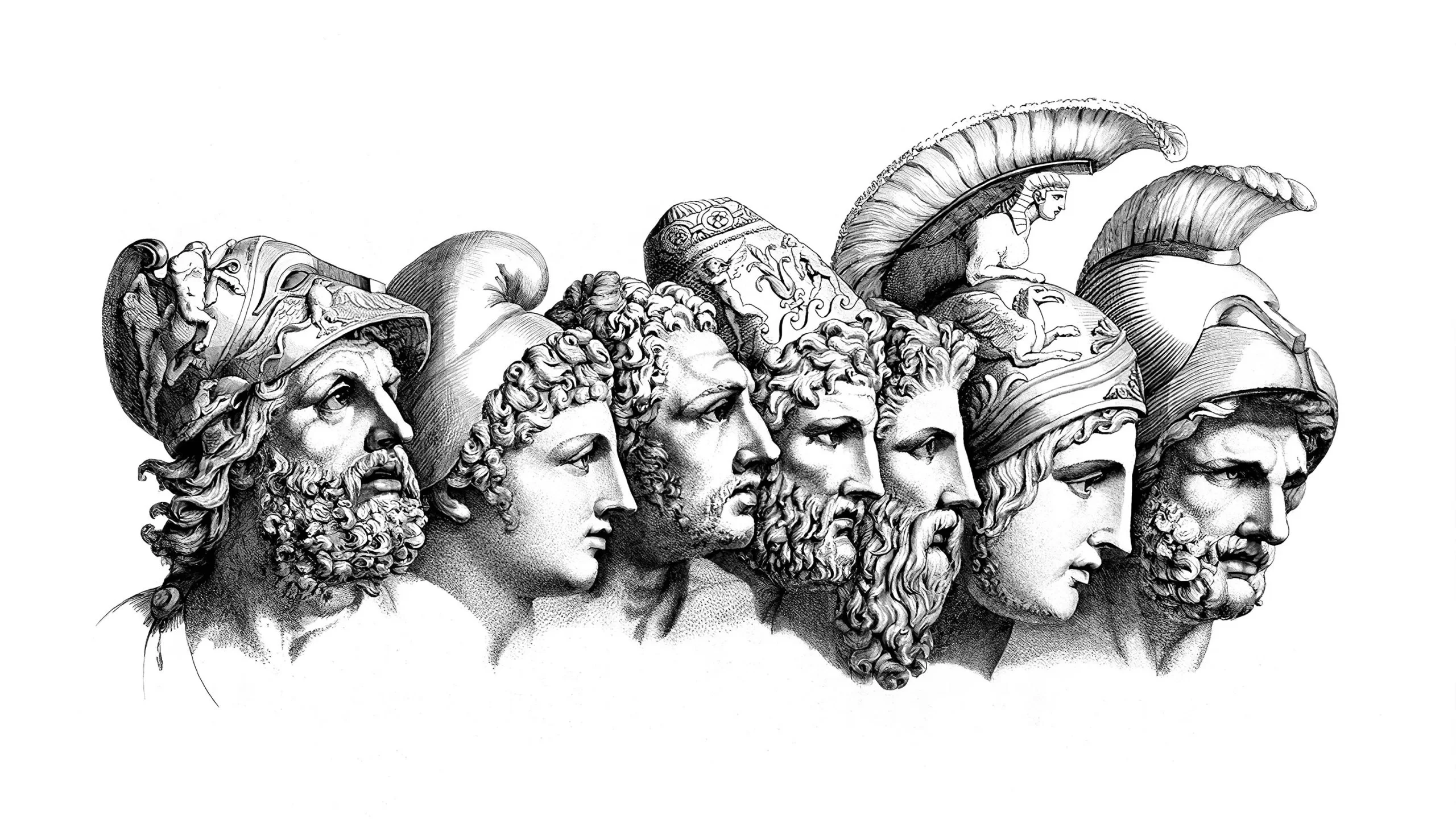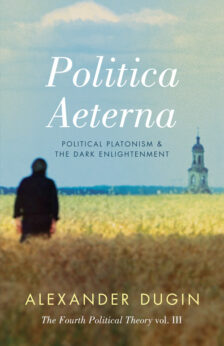By their very nature, all thoughts are abstractions, so the paradox of calling integrative ideas over the description of events “abstract” hides the abstraction of our vantage into the shadow and outside of our conscious awareness. The hidden framework of fallen objectivity is that it inherently compartmentalizes and categorizes. This is useful to the point of an end in the short term working within the framework given but is also inherently reductive and limits our perception. Creation is to see outside of the current framework and broaden our perception of integrative living reality, thus becoming a creator instead of an acted-upon state. The cognition of modern man is limited to the compounding cycles outside of his perception in the machine of history that folds into the next reaction with increasingly shorter periods of the hero revolting before being again subsumed.
The hero’s curse subsumed in the trader is that he upholds the state disjointed from cultural synergism and takes on many forms as it compounds down the same trajectory. The underlying illusion is the Stasis of Forms or the top-down categorical view of forms within this system as good or evil instead of the essence that drives them taking on different forms in different contexts over compounding cycles. “No man ever steps in the same river twice, for it’s not the same river and he’s not the same man.” This means much more than the finality of passing time but points to the underlying nature of forms missed by many philosophers since Heraclitus. By their very nature, forms are in flux, ever-evolving in a living chain from the same essence — attached Being is always Becoming new forms.
You never see the same sky twice because it is continually in flux like all living entities. The sky is literally never the same, but it is always a sky, and forms do not just jump to an entirely new essence. The sky does not one day become the ground, but weather patterns are constantly changing, clouds or storms from minute to minute, and on the macro level, the cosmos appears far different over ten thousand years. The missing key that allows for objectivity to be reintegrated is that the absolutes are living processes; hence Natural Law has to be grounded in Natural Order. The relational vantage of the absolute by a living co-creator is a real objective perception, which is why there can be conflicting facts that need to be synergized into a living whole. In times of use alone in cognition and “objective” impersonalization, all people are subjected to a lifeless representation of “fact.” Contextualization is the act of co-creation lost to what I call the Stasis of Forms.
Transhumanism is the simulacrum of Becoming or what the ancients called “progress.” This same progress is not the growth of evolving living systems becoming new forms in attached essence, but that of decontextualized vantages under the shadow of detached false objectivity devaluing all of reality to base use and thus human experience to isolated subjectivity and synchronized objective replacement of a living absolute. True objectivity is a relational perception of the living whole of reality beyond any one being’s ability to grasp fully or to detach from. Living systems are inherently differentiated but not in the way that is usually understood as is taught in anatomy — imagine a first-year biology or kinesiology student’s shock when he find outs that a tendon is not just some separate piece between a bone and a muscle but actually transitions fully from bone to tendon to muscle. There is no demarcation line, but foundational differentiation with peripheral transition still exists.
Reality is understood as a foundational form because of the timeline of our living vantage in one life. The transition of the change in forms is continually happening from the same essence. In the sky, it happens faster; the river is foundationally the same to the person the next day, even with different details on the periphery, but not in a millennium or ten. It could carve an entirely different path, dry up, make new branches, or introduce new species, monuments, or things lost to its depths. The river and the sky do not turn into a banana — Being and Becoming are a living continuum. Thus, the end stage of the material void in transhumanism is the fruit of our illusion that lacks essence in the first place and focuses so heavily on the forms that the relational and contextual perceptions are subsumed, leaving everything to fall to the subjective. For the last few millennia, this zeitgeist has been folding and evolving on an unnatural course because it is not bound by living natural order but a making of our own abstractions that we are unwilling to see and instead represent a simplified simulacrum we believe is factual and ignore the complexities of contextualized “abstractions” that are not “useful,” but really that depends on what timeline.
The man who can make use of the times is really being made use of by the zeitgeist. From the fall of the Dorian Hellas between Sparta and then Macadon to the rise of Rome, we see a shift to the beginning of this zeitgeist using the hero to propel the trader into globalist transhumanism over many folding and compounding cycles. The rise of any heroic figure to transmute the death sentence of his people has an inverse relationship to the evolution of this zeitgeist — taking the energy of the man or the group because the form of the hero that rises back is not the issue. Napoleon was not the trader, but the aristocracy of the times had fallen to their own decadence in conjunction with shifting human organization around mechanized society. The mob-elite axis is the fusion of the disjointed classes of material civilizations, creating the need for each other. At random, the hero gains control of the reins and is eventually subsumed by it back into its folding trajectory.
The illusion that one person wields the power is increasingly short-lived — the aristocracy created the mercantile, and the result of the revolution was only further along the same material lines after the decade and a half of a revolt of glory intercepting it. It is not the form of the empire, dictator, general, king, nation, etc. – since even Napolean’s “empire” was far more nationalistic than the monarchy, and aristocracies he fought being far closer combined to ancient decadent empires — but the underlying essence of the hero revolting against his subsumption. To utilize the potential inflection point and free the hero from this millennia-long curse, we must regain a contextualized understanding and methodology of living absolutes to regain true lasting power over the usurpation of the heroic by the trader. Rome was the first to transmute the death sentence along the lines of the zeitgeist but that form will not be seen again because the next fold is into the void of globalist transhumanism. We need a Lycurgus, not a Ceasar or Napoleon because we are no longer at the revolution following industrialization but the technological revolution and end form of the trader civilization’s evolution in the simulacrum of our own making.







